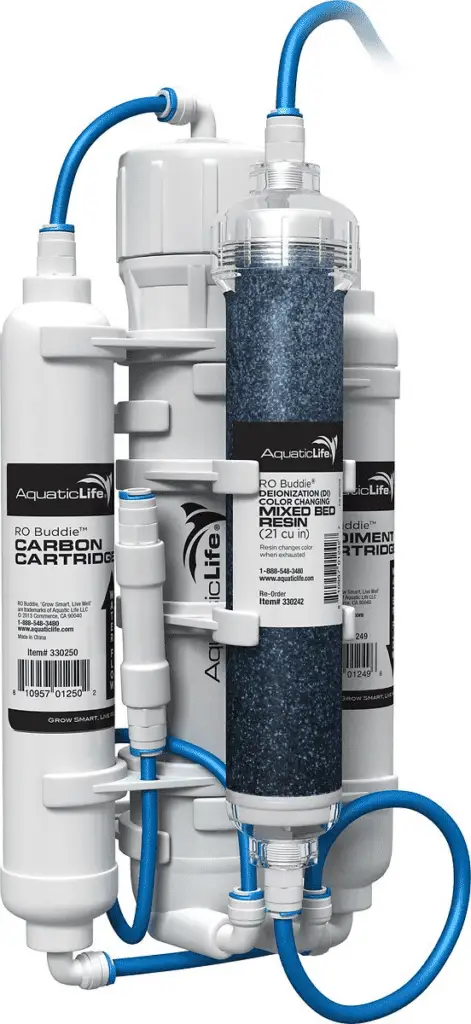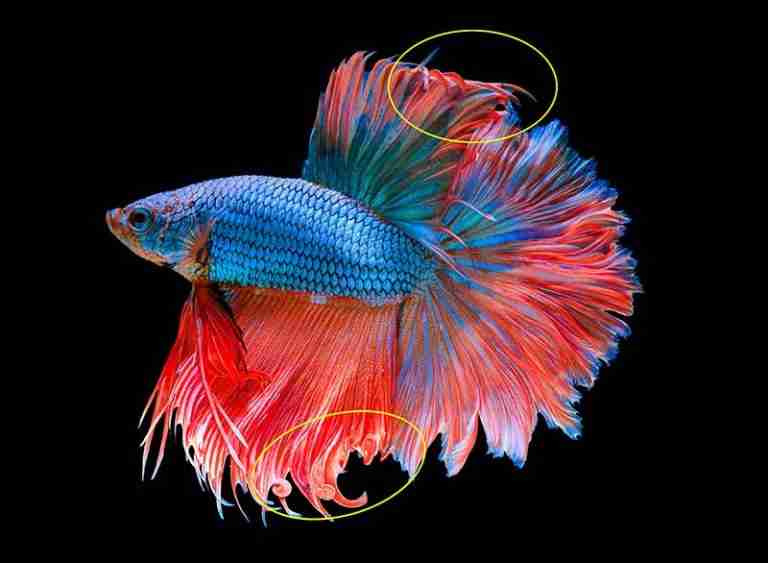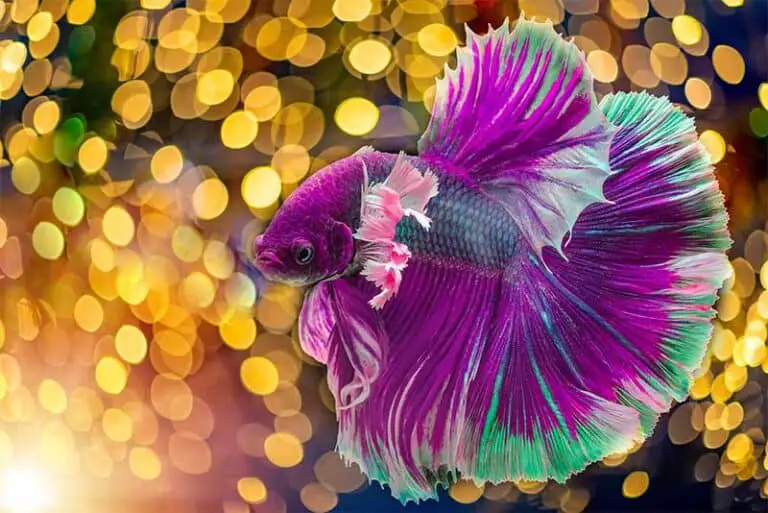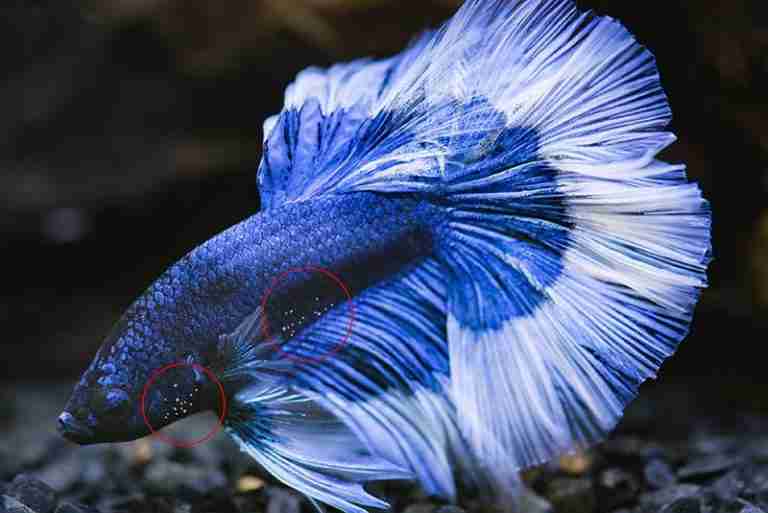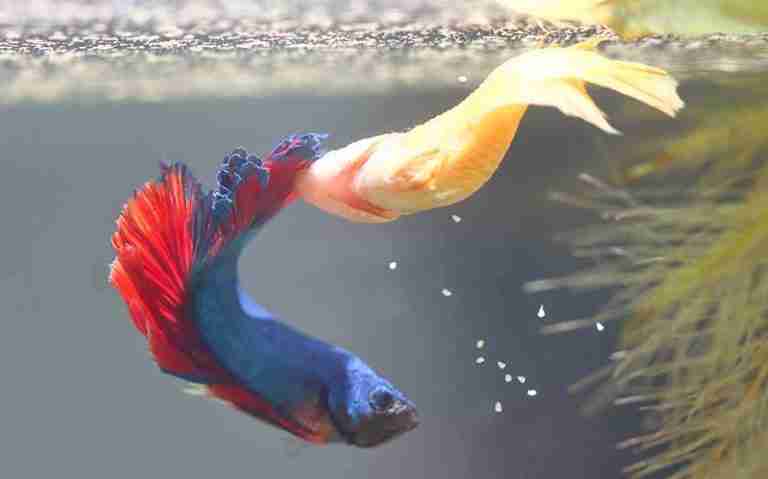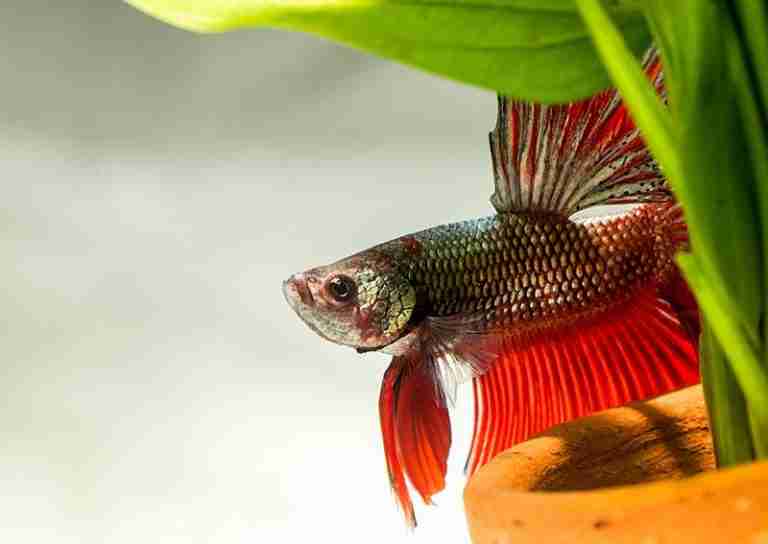What Water To Use For Betta Fish (And the reasons why)
There are a few things to consider regarding what water to use for betta fish. It’s always wise to check with a qualified aquarium specialist to get the most accurate information on what water parameters are ideal for your fish and what type of water is best to use.
While tap water is typically fine for betta fish, filtered or distilled water may be a better option. Tap water contains chlorine and chloramines, which you should remove with a water conditioner. Bettas also do well in warmer temperatures, between 78°F to 80°F (25.5°C – 26.7°C), and a neutral to slightly acidic pH level of 6-7.5 is perfect.
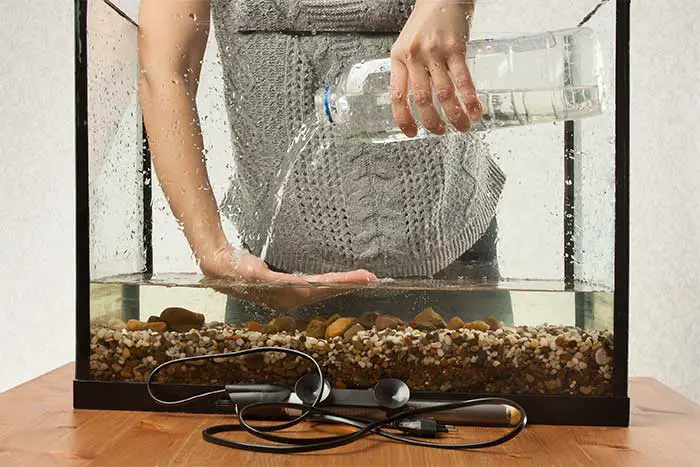
Whether you already have a betta fish and are looking for a better water source, or you are setting up your first betta tank, this short article will take you through the most popular water sources and will discuss which is the best water for betta fish.
What Type Of Water Do Betta Fish Need?
Betta fish are pretty hardy and can survive in a wide range of water conditions. However, they will thrive and be much healthier in water that meets their specific needs.
In the wild, bettas live in warm, slow-moving streams and rivers with plenty of vegetation. They are also known to inhabit rice paddies, ditches, and canals.
Deciding on what kind of water for betta fish is not so straightforward, but with an understanding of a betta’s native habitat and the typical water parameters that they are used to, you can find the best source of water to use in your area. Alternatively, you can establish a water treatment routine that can be copied each time you carry out a water change.
There are many water sources and types that you can choose from, each with its own set of benefits and drawbacks. The most popular water sources used by fish keepers are:
- Tap Water
- Bottled water (Distilled water, Mineral Water/Spring Water)
- Well Water
- Rain Water
- Reverse Osmosis (RO) Water
Some of the water sources I have listed will be very close to what a betta fish requires without treatment, whereas some will need extensive treatment before they are safe for your betta.
Keep reading, and I will cover each water source in more detail, and I will explain how to treat each of them to help your betta fish thrive and have a healthy life.
Betta Fish Water Temp
Another question that is commonly asked and is an important consideration when preparing water is “What water temperature for betta fish?” As betta fish are freshwater tropical fish, they prefer warmer water that is between 78°F to 80°F (25.5°C – 26.7°C).
Maintaining the ideal water temperature for betta fish is easiest when using a fish tank heater. However, a room with an ambient temperature within this range throughout the year will suffice.
If you already have a betta tank set up with your betta in situ, it is essential to allow fresh water to reach the correct temperature before adding it to the tank. Betta fish can withstand varying temperatures if they can adjust over time, but sudden temperature changes will cause shock, leading to stress in betta fish and many illnesses.

To get your water temperature close to that of the water already in your betta tank, you can use several methods:
- Allow your fresh water to sit for a while. The water will warm naturally to ambient room temperature.
- Add the water in stages. Smaller amounts of water will quickly warm to the tank water’s temperature. Adding a large quantity of water in one go will overwhelm the temperature of the whole tank, cooling it considerably over a short time. Instead, add your betta water over several evenly spaced intervals.
- Add hot water from your kettle until the temperature is similar to your tank water. You can treat the water if necessary after adding the hot water.
It doesn’t matter how you warm your betta water, the main concern is that it is a similar temperature and free from harmful chemicals. You will also want to try and match the tank’s current pH and water hardness, which I will discuss next.
How To Prepare Water For Betta Fish
So we have talked about water sources and water temperatures as they are the most obvious requirements, but there are a few more considerations when preparing water for betta fish.
Depending on the water you use for your betta tank, you will probably need to treat it. Tap water usually contains chlorine and chloramines, which are harmful to fish and kill any beneficial bacteria you need in your betta tank.
Commercially available water conditioners will remove these toxic chemicals, and some will even contain beneficial bacteria.
Water often contains dissolved minerals, which in small amounts are beneficial to the health of most fish. Water that is high in minerals is described as hard water.
The minerals that you will usually find in hard water are calcium and magnesium. Other minerals that you may find are iodine, phosphorus, magnesium, sodium, chloride, potassium, sulfur, copper, and zinc.
All of the minerals mentioned above are beneficial to the health of your fish when in minimal (trace) amounts, although water derived from hard water areas may contain an abundance of these minerals, which can be very unhealthy for fish.
Another positive of using mineral-rich water is that it can neutralize acidity, which will keep your water’s pH stable. This is important as a sudden change in pH can cause stress to your betta fish.
It would take entire articles to explain water pH levels, alkalinity, and water hardness, and it just so happens that I have written articles on each of these subjects, which are listed below. I recommend you read these articles if you are new to fishkeeping or have gaps in your knowledge.
Understanding water parameters and how to change them is one thing, but what water parameters do betta fish prefer?
Betta Fish Water Parameters
In this section, we will look at the ideal betta fish water parameters and discuss what properties are required for betta-specific water to make it safe for betta fish. The table below is a quick reference to the critical parameters and the safe ranges for optimum health.
| Water Parameter | Value |
|---|---|
| Temperature Range | 78°F to 80°F (25.5°C – 26.7°C) |
| pH Range | 6-7.5 (Neutral – Slightly Acidic) |
| Water Hardness | GH: 3-4 dGH (50-66.7 ppm) KH: 3-5 dKH (53.6- 89.4 ppm) |
| Safe Ammonia Level | 0 ppm |
| Safe Nitrite level | 0 ppm |
| Safe Nitrate Level | <20 ppm |
Keeping your water parameters within the ranges shown above will provide the best betta fish water conditions. Remember, betta fish are pretty hardy and can survive in many conditions outside these optimal ranges. Betta fish living outside their optimal ranges will often not lead comfortable or healthy lives.
What I Use
You will need to use a water test kit to establish the correct water parameters. The water test kits I would recommend are:
The API Master Freshwater Test Kit is a complete water testing bundle. A little expensive, but it will last and has many uses.
Tetra Easystrips 100 Count is a simple dip and test suitable for ongoing water testing for several of the most important water parameters.
Can You Use Tap Water For Betta Fish?
Tap water is perfectly fine for betta fish and is what most people will use. There are several benefits to using tap water, such as its low cost and availability. It would be wise to test your tap water to establish its baseline pH and hardness, or you can check with your local water company.
How often do you clean a betta fish tank, and how often do you change betta water? It should be done frequently, and tap water can save you lots of time and money.
Once you understand the properties of your tap water, you will know how to treat it more quickly and develop a routine to make water changes easier.
Although tap water is fine for betta fish, untreated tap water will contain chemicals such as chlorine added at the treatment plant to make it clean and safe to drink. Dependent on the water’s source, it may also contain lots of minerals and heavy metals.
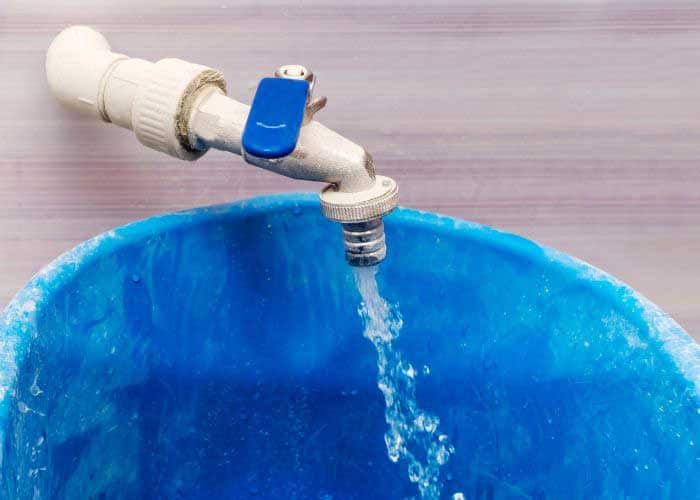
Using a suitable aquarium water conditioner, you can quickly treat tap water to make it safe for your betta fish.
How To Treat Tap Water For Betta Fish
When treating tap water for betta fish, you need to decide whether to dechlorinate, remove minerals and heavy metals, or both. Treating tap water is made simple using products readily available in fish stores and most general pet stores.
The products available for tap water treatment can fall into different categories, such as dechlorinators, softeners, or general water conditioners.
So why not just buy a general treatment? Most people do, myself included, as it is much simpler to add one product to the water rather than worrying about which product to use. Using a general water conditioner will not cause harm to your betta fish as you are just neutralizing it.
So when would you buy a de-chlorinator by itself? I’ll explain their specific uses and reasons for using each in a little more detail.
How To Dechlorinate Water For Betta Fish
Fish tank water dechlorinators are specifically designed to break up tap water’s harmful chlorine and chloramines. Chlorine is a powerful chemical that can kill microscopic germs but is deemed safe to ingest at low levels. Keeping chlorine in your fish tank water can be far more dangerous as it can be very toxic to fish.
In higher doses, chlorine can kill your betta fish, and at lower doses, it can irritate or damage a fish’s gills, causing breathing difficulties or, at the very least, causing stress to your betta, which can lead to more severe illness.
Another issue is that chlorine can upset the delicate biological balance of your betta fish tank. If you have cycled your tank correctly, you will understand the need for the beneficial bacteria that will have developed in your tank.
The second you add chlorinated water to your carefully established tank, it will kill the necessary bacteria. Without beneficial bacteria, ammonia levels will increase along with nitrite levels, which are very toxic and can kill your betta fish. You will also experience a bacterial bloom which is a common cause of cloudy fish tank water.
You can dechlorinate water for betta fish in several ways, such as:
- Using water that has been left to stand for 24 hours will allow the chlorine to dissipate naturally.
- Let the water sit in the sun. The sun’s UV rays will break down chlorine and chloramines.
- Boil water for at least 10 minutes. The boiling process will break down chlorine and chloramines, but you must let the water cool before adding it to your tank.
- Pre-filter the water using reverse osmosis. Reverse osmosis is a method of extracting very fine particles from the water, leaving it free of chemicals, minerals, and heavy metals.
- Use a commercially available de-chlorinator.
What I Use
My personal choice is to use a commercial de-chlorinator such as Brightwell Aquatics ERASE CL water conditioner because it is simple to use, effective, and only targets the chlorine and chloramines, whereas some of the methods above also remove minerals from the water.
I mentioned earlier in this article that a few minerals are beneficial to the health of your betta fish, so if your tap water only contains trace amounts of minerals, why would you want to remove them? This is a perfect example of why you may only need to use a de-chlorinator and not a general conditioner.
It won’t harm your betta fish immediately if you remove all the minerals from the water, but they may suffer in the long term, so you will need to find ways to add these minerals back over time. I linked to an article in the previous section that explains water hardness and also gives examples of how to add or remove minerals. You can also buy a ready-made mineral solution specifically for freshwater aquariums.
It is also good to know that the best betta fish water conditions are typically soft water with a slightly acidic pH and a lower mineral content. Harder water is usually more alkaline (basic) and generally pretty mineral-rich in comparison.
How To Condition Water For Betta Fish
Conditioning water for betta fish is very similar to the dechlorination process described above. Several methods used to dechlorinate tap water can be used for general conditioning.
Conditioning water for betta fish will be necessary in most cases, and I would do it as a matter of general safety. A good quality water conditioner will add some minerals and some beneficial bacteria to the water for good measure. Once you have successfully conditioned your betta tank water, you know it will be safe and free of all chemicals, minerals, and heavy metals.
What I Use
I recommend using a product like Microbe-Lift Xtreme Conditioner, which will cover all the bases and make your tap water safe for betta fish.
I found this useful video on Youtube which talks about using tap water in an aquarium and the best treatment methods.
Can Betta Fish Live In Tap Water Without Conditioner
Betta fish can live in tap water without adding a conditioner if you have treated the chlorine through boiling, standing, pre-filtering, or UV light. You will also need to be sure there are no other chemicals in the water that can harm your betta fish.
Is a water conditioner necessary for betta fish? Absolutely not, and many types of water can be used for betta fish that will need little or no treatment.
So let’s take a quick look at alternative water sources for your betta’s tank.
Can I Use Bottled Water For Betta Fish?
Bottled water is an excellent alternative to tap water when creating your specially prepared betta water. There are several types of bottled water, each with different properties, many are free from harmful chemicals. Bottled water is more expensive than tap water, so let’s look at the benefits.
The most popular bottled waters that can be used for your betta fish tank are:
- Mineral water
- Spring water
- Distilled water
Each of these waters has different properties, but you can use all of them for your betta fish. So let’s look at each and find out which is best to use in your betta tank.
Distilled Water For Betta Fish
Distilled water is the purest form of water and contains no minerals or chemicals. Distilled water is made by boiling water until it evaporates and then condensing the steam back into the water. This process leaves behind any impurities present in the original water, making it very clean and safe for your fish to live.
Using distilled water for betta fish is a great option, but it does have some drawbacks. Purified water has no minerals, which are necessary for healthy fish. Distilled water has a neutral pH of 7, which is fine for betta fish as they prefer a neutral to slightly acidic pH of 6 to 7.5.
Purified water is also free of harmful bacteria and parasites, which can lead to a breakout of illness in your betta tank.
What I Use
There are many ways to add minerals to your water, through additives or naturally.
I recommend using Seachem Equilibrium which contains all the essential minerals and is perfect for any mineral-deficient water, including distilled, de-ionized or reverse osmosis water.
Spring Water For Betta Fish
Bottled spring water is an excellent choice for a betta tank as it has few treatments, so it will not contain harmful chemicals. Bottled spring water is often high in natural minerals, which can benefit your betta fish’s health, and the pH can also be more stable than other types of water.
So what is the definition of spring water?
Spring water refers to fresh water gathered directly from a natural spring, usually far beneath the earth’s surface, which rises to the surface. Unlike distilled water, spring water is high in trace minerals and is one of the best types of drinking water for hydration and other health benefits.
Bottled spring water is a specific kind of water that comes exclusively from a single non-polluted groundwater source and has been protected against pollution and contamination. It’s kept secure within restricted vulnerability perimeters to avoid pollution and contamination, making it suitable for human consumption and bottled at the source.
Spring water may undergo permitted treatments but must comply with the Drinking Water Regulations.
Mineral Water For Betta Fish
Mineral water is another natural water source that requires no treatment if using it for betta fish. Mineral water is well labeled and should tell you the source, mineral content, and pH. No chemicals should be added to genuine mineral water, but you should always check the label.
Natural mineral water is produced from a known underground source that is free of pollution. The water must include constant minerals such as calcium, magnesium, potassium, and sulfates. True mineral water cannot be treated in any way that alters the chemical makeup of the water.
In addition, natural mineral water must include specific label information, such as the usual mineral analysis. A local authority must officially recognize mineral water after a two-year qualifying period, which is tested regularly throughout this time.
While both spring water and mineral water have some similar characteristics, they differ in some subtle ways, including their chemical composition and how they are regulated and monitored.
Best Bottled Water For Betta Fish
Considering the above information, you may still be a little confused as to which is the best bottled water for betta fish, and to be fair, it is down to personal choice. You should always check the label to identify if there are any added chemicals that may harm your betta, but distilled water is very pure, and true mineral or spring water should not contain any added chemicals.
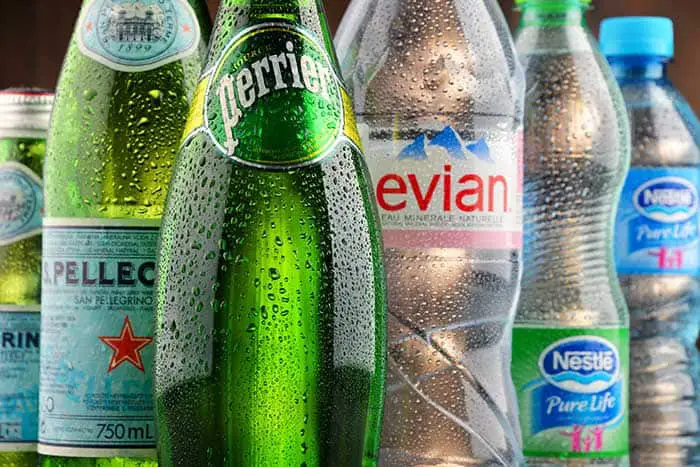
You should also ensure that you use still water instead of sparkling. Fizzy or sparkling water is infused with carbon dioxide gas which will quickly deplete your betta tank water of dissolved oxygen on contact, causing your betta fish to suffocate. Although the effect is temporary, you must re-oxygenate your tank as quickly as possible through surface water movement, or you can use an air pump for your betta tank.
When choosing bottled water for my betta fish, my favorite is distilled water as its pH is spot on and free from harmful chemicals and bacteria. Distilled water is also cheap, so an average-size betta tank won’t cost too much to fill.
I use a remineralizer to add back the trace minerals that betta fish will need for good health.
If you prefer to use mineral or spring water, that’s fine. You will need to test it with a water testing kit to decide what adjustments will be necessary.
Reverse Osmosis Water For Betta Fish
Although bottled water has little to no impurities and is safe for betta fish, it can become expensive to buy over time, which is why most people will use tap water and go through the time-consuming process of dechlorination and conditioning. There is a process of purifying water that can become much cheaper over time called reverse osmosis.
In a nutshell, reverse osmosis is a process by which water is forced through a semipermeable membrane, leaving impurities behind. This makes it an ideal way to create pure water for betta fish.
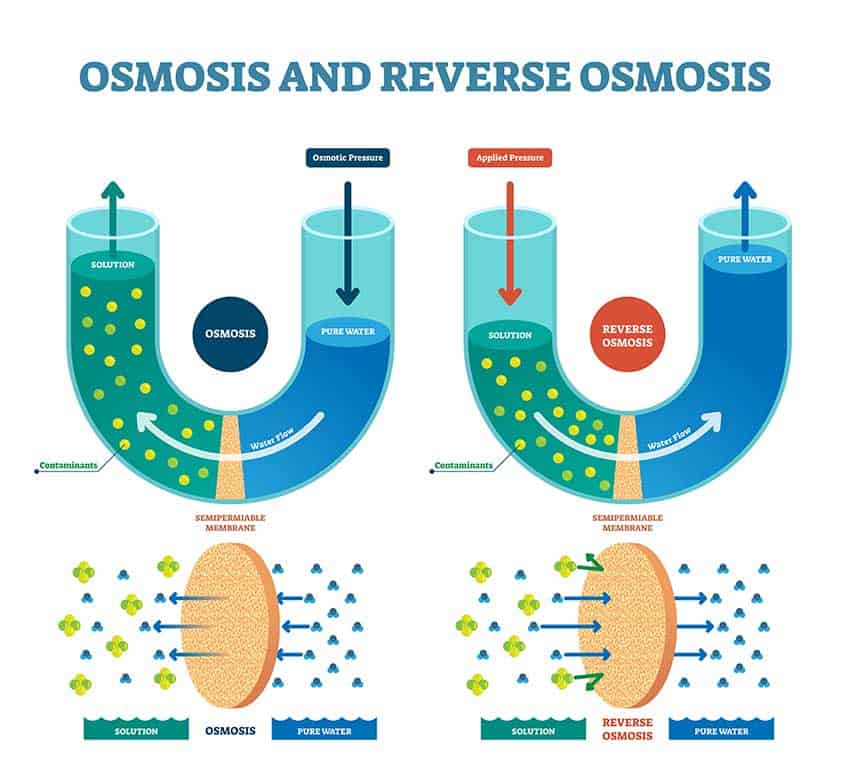
Reverse osmosis requires purchasing a filter, which can be quite expensive. Still, you will quickly recoup the cost over a short time by purifying your tap water and avoiding the need for costly dechlorinators and conditioners.
What I Use
If you want to purchase a reverse osmosis filter, the Aquatic Life Reverse Osmosis Bundle with 4 stage reverse osmosis and deionization is a great unit.
Can I use well water for betta fish?
Well water can be used as betta water and will typically be free of chlorine or chloramines, but the pH of well water is variable, and so is its mineral content. Dependent on its source, well water may also contain contaminants, so boiling and treating is advisable. Always test with a water test kit to establish the water parameters, then you can make necessary adjustments.
If you have access to a well and the water is clean and free from contaminants, it can be a better choice to tap water, requiring less treatment.
Can I Use Rain Water For Betta Fish?
In general, rainwater is suitable for betta fish, although there are a few things to bear in mind. If you reside in an air pollution-influenced region, the rainwater may be contaminated and should not be used. Collected rainwater can also contain harmful bacteria or chemicals that can harm your fish if kept in an uncovered container.
The mineral content and pH of rainwater are also influenced by the geographical area in which it falls. If you’re unsure about the quality of your rainwater, it’s always best to err on the side of caution and use treated tap water instead.
Best Water To Use For Betta Fish
It is difficult to say which is the best water for betta fish as all water will need to be treated until it meets the required parameters.
Bottled waters and reverse osmosis water will require the least amount of adjustment but is more expensive. Tap water is the cheapest and most readily available, although you will need an entire testing regime and treatments to make it safe.
Choosing the best water to use for betta fish will inevitably come down to your circumstances and requirements, but all water can be made suitable and safe with a bit of work. Using the same water regularly will help develop a routine, and you will quickly learn how much water conditioner or other treatments are required.
In Conclusion
Water is the habitat your betta fish require to live, so you should ensure they have the best quality water that remains clean and sits within the correct range of parameters. When learning how to care for betta fish, providing them with the best water conditions comes at the top of the list.
Some people will tell you that one type of water is much better than another, but there will always be trade-offs as it is unlikely any water type will be perfect for a betta fish without some form of additive or treatment.
Many people believe that the purer the water, the better, but the removal of minerals can be detrimental, especially trace minerals that are required for the best long-term health of your betta fish. You can add minerals back into the water afterward through a variety of means.
I hope this article has helped you decide what water to use for betta fish and demystified the process.


